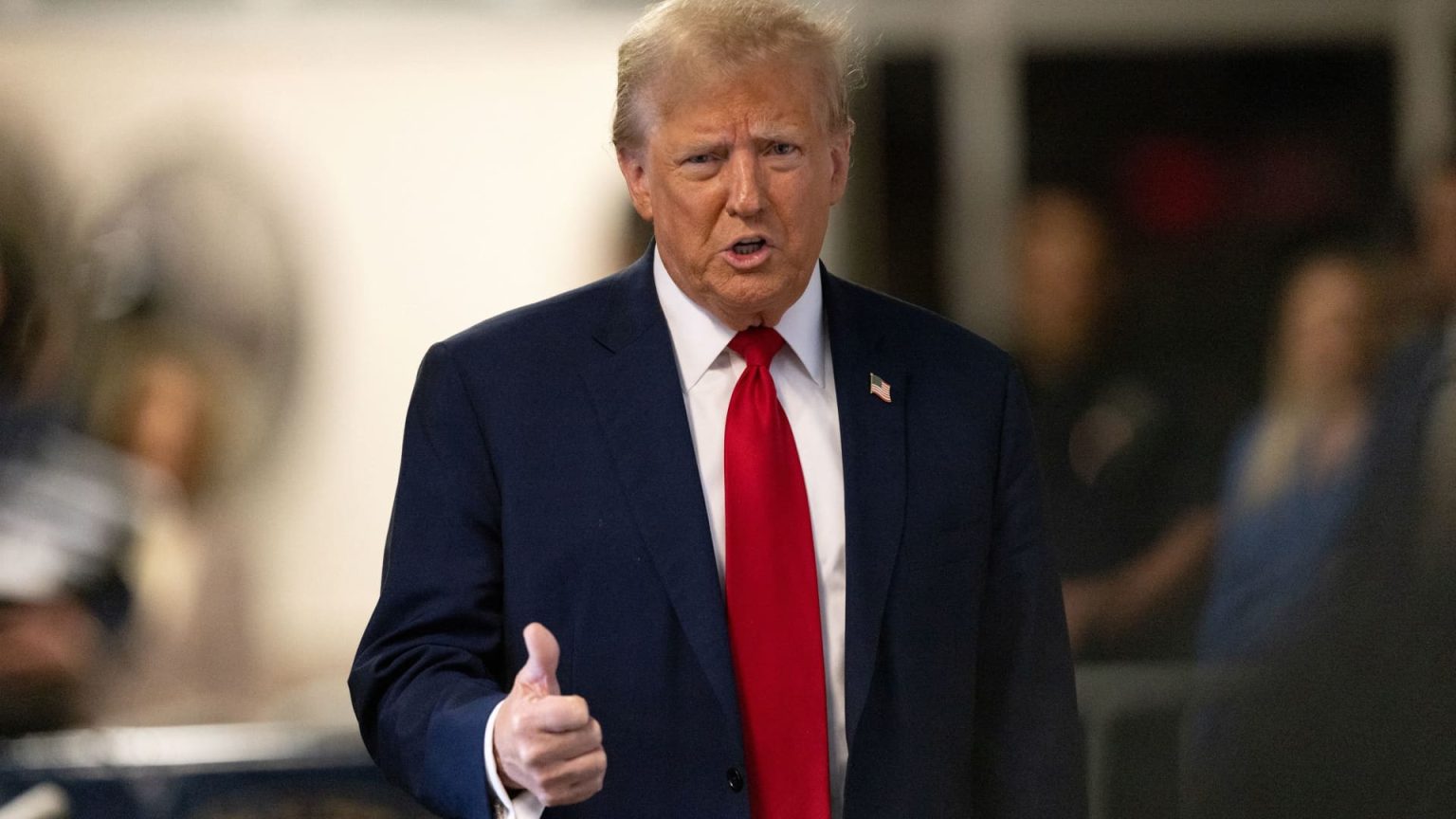Former President Donald Trump’s political operatives are working on a plan to give him unprecedented influence over the Federal Reserve, including a provision that could make him an “acting” central bank board member. This plan, which is highly secretive, includes a 10-page document suggesting that Trump, if re-elected, would be consulted on interest rate decisions. It also proposes using the Treasury Department as a check and balance to oversee the Fed’s bond-buying activities. Additionally, the draft suggests that Trump could remove Fed Chair Jerome Powell from office and require Fed policy to align with the administration’s goals.
During his time in office, Trump frequently criticized Powell and the Federal Reserve as they were raising interest rates. He even reportedly considered removing Powell from his position. The draft proposals from Trump’s campaign officials are not considered official, and it is unclear what authority the president would have to make such significant changes to the Fed. The Federal Reserve typically seeks to insulate its activities from outside political pressure, so these proposals would represent a significant departure from tradition.
It remains to be seen how these proposals will be received by the Federal Reserve and the public. A Fed spokesperson declined to comment on the report, indicating that the central bank may be reluctant to engage in political discussions. Giving a sitting president such broad influence over monetary policy could have far-reaching implications for the economy and financial markets, as decisions made by the Federal Reserve can have a significant impact on interest rates, inflation, and employment.
Allowing a president to remove the Fed Chair and align Fed policy with the administration’s goals could potentially politicize an institution that is meant to operate independently to ensure economic stability. Critics argue that such actions could undermine the credibility of the Federal Reserve and lead to decisions that prioritize short-term political interests over long-term economic health. It is essential for central banks to make decisions based on economic data and analysis rather than political considerations to maintain public trust and confidence in their ability to manage the economy effectively.
The Federal Reserve plays a crucial role in setting monetary policy to achieve stable prices, maximum employment, and moderate long-term interest rates. Granting a president such significant influence over the Federal Reserve’s activities could undermine its ability to fulfill its mandate effectively. The independence of the central bank from political interference has been a cornerstone of economic policymaking for decades, and any attempt to change this relationship could have profound consequences for the economy and financial markets.
Ultimately, the proposals outlined in the draft document raise serious concerns about the potential politicization of the Federal Reserve and the implications for economic policy in the United States. It is essential to maintain the independence of institutions like the Federal Reserve to ensure that decisions are made in the best interest of the economy as a whole rather than serving the political interests of a specific administration. The outcome of these proposals and the reaction from policymakers, economists, and the public will be closely watched as the debate over the Federal Reserve’s independence continues to unfold.













